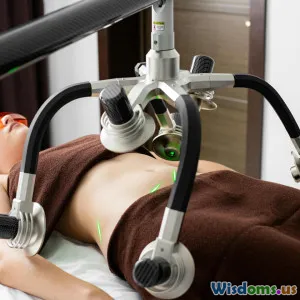
Innovative Treatments in Modern Medicine
6 min read Explore the groundbreaking treatments revolutionizing modern medicine and their impact on patient care and recovery. (0 Reviews)
Innovative Treatments in Modern Medicine
In the rapidly evolving world of healthcare, innovative treatments are continuously emerging, reshaping the landscape of modern medicine. With the integration of advanced technologies and groundbreaking research, patients now have access to therapies that were unimaginable just a few decades ago. This article delves into some of the most exciting innovations in medical treatments, highlighting their implications for patient care and recovery.
1. Gene Therapy: The Future of Genetic Disorders
Gene therapy is one of the most promising areas of modern medicine, offering potential cures for genetic disorders. By using techniques to modify or manipulate genes within an individual's cells, scientists aim to correct genetic defects that cause disease. For instance, Luxturna, a gene therapy treatment for a rare form of inherited vision loss, has shown remarkable success, restoring sight to patients who were previously blind.
Key Benefits:
- Targeted Approach: Gene therapy directly addresses the root cause of genetic disorders rather than just treating symptoms.
- Long-lasting Effects: Many gene therapies provide long-term benefits, often with a single treatment.
2. Immunotherapy: Harnessing the Body's Defense
Immunotherapy has transformed the treatment of various cancers, utilizing the body’s immune system to fight malignancies. Treatments such as CAR T-cell therapy have demonstrated remarkable success in certain types of blood cancers, with patients experiencing significant remission rates. This groundbreaking approach involves modifying a patient's T-cells to better recognize and attack cancer cells.
Key Benefits:
- Less Toxicity: Compared to traditional chemotherapy, immunotherapy can offer a more tolerable side effect profile.
- Personalized Treatment: Immunotherapies can be tailored to the individual’s specific cancer characteristics.
3. Telemedicine: Revolutionizing Access to Care
The rise of telemedicine has revolutionized how healthcare is delivered, particularly highlighted during the COVID-19 pandemic. Patients can now consult healthcare professionals from the comfort of their homes, reducing barriers to access and allowing for timely interventions. This innovation has proven especially beneficial for those in remote areas or for individuals with mobility challenges.
Key Benefits:
- Convenience: Patients save time and resources by avoiding travel to healthcare facilities.
- Increased Access: Telemedicine expands access to specialists and improves healthcare equity.
4. Personalized Medicine: Tailoring Treatments to Individuals
Personalized medicine, or precision medicine, refers to the customization of healthcare, where treatments are tailored to the individual characteristics of each patient. This approach considers factors such as genetics, environment, and lifestyle, leading to more effective and targeted therapies. For example, patients with certain genetic markers may respond better to specific cancer treatments, allowing for more effective management of their condition.
Key Benefits:
- Improved Outcomes: Personalized treatments can lead to better patient outcomes and increased efficacy of therapies.
- Reduced Side Effects: By targeting the right treatment to the right patient, adverse effects can be minimized.
5. Robotic Surgery: Precision and Control
Robotic surgery has gained traction as a minimally invasive option that provides surgeons with enhanced precision and control. Procedures such as prostatectomies and hysterectomies can now be performed using robotic systems, resulting in less pain, reduced recovery times, and shorter hospital stays for patients.
Key Benefits:
- Minimally Invasive: Smaller incisions lead to less trauma and quicker recovery.
- Enhanced Visualization: Surgeons benefit from high-definition 3D imaging, improving surgical outcomes.
Conclusion
Innovative treatments in modern medicine are not just transforming patient care; they are paving the way for a new era of healthcare where precision, accessibility, and effectiveness are at the forefront. From gene therapy to telemedicine and personalized medicine, these advancements reflect the remarkable synergy between science and technology. As research continues to evolve, we can expect even more groundbreaking treatments that will enhance the quality of life for patients worldwide.
The future of medicine is undoubtedly bright, and with these innovations, we are one step closer to conquering some of humanity’s most challenging health issues.
Rate the Post
User Reviews
Popular Posts



















